Bali bombing anniversary: Where are the Bali bombers now
Twenty years on from the the Bali bombings that killed 88 Australians, we take a look at what happened to the people who were behind the attack.
True Crime
Don't miss out on the headlines from True Crime. Followed categories will be added to My News.
On the eve of the twenty year anniversary of the Bali bombings that killed 202 people, including 88 Aussies, take a look at where the people behind the attack are now.
MASTERMINDS
Hambali (Encep Nurjaman) Former military leader of terror group Jemaah Islamyiah with ties to Osama bin Laden. Allegedly funded and organised the Bali attack. Captured by the CIA and held in a “black site” for three years before being sent to Guantanamo Bay. Will finally face court almost 20 years to the day since the attacks.
Dulmatin – One of the most wanted terrorists in South East Asia who trained with Al-Qaeda before he was shot dead by police in 2010. He put together the Bali bomb with Azahari Husin.
Umar Patek — (aka Hisyam bin Ali Zein) – Dubbed the demolition man for his expertise in bomb making. Captured in Pakistan in 2011. Found guilty on six charges including premeditated mass murder and bomb maker behind the Bali attack. Sentenced to 20 years jail. Granted early parole due to be released, Claims to be deradicalised.
Dr Azahari Husin Close associate of Hambali. Technical mastermind of Bali bombings and a string of other bombings across Indonesia. Killed in a shootout with police in 2005.
Noordin Mohammed Top Recruiter, bomb maker and financier of JI and responsible for arranging Bali bombings. Killed in police shoot out 2009.
SPIRITUAL LEADER
Abu Bakir Bashir – Spiritual leader of Jemaah Islamiyah terror group who also reportedly pledged allegiance to ISIS. Convicted and jailed for two and a half years for links to the Bali bombing but had his conviction quashed. Later convicted of other terrorism attacks. Released last year and claims to be deradicalised.
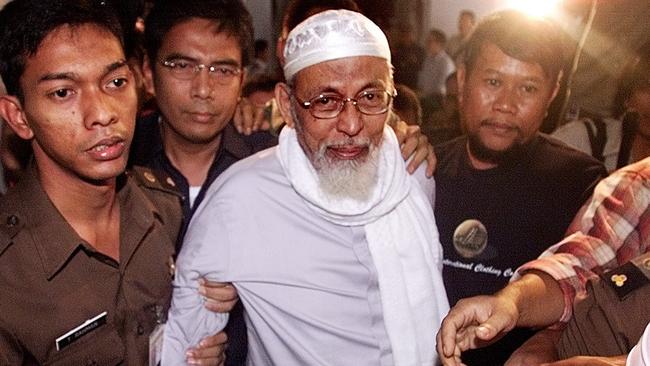
OPERATIVES
Imam Samudra (aka Abdul Aziz, aka Abu Umar) Trained at terror camp with Hambali and Abu Bakir Bashir. Was the “field commander” or planner of the bomb attack. Found guilty and remained unrepentant until his execution by firing squad in 2008.
Ali Ghufron (aka Mukhlas), aka Huda bin Abdul Haq Attended school run by Bashir and trained in Afghanistan. Recruited two brothers for the Bali attack and with Hambali secured funding. Head of Mantiqi One, the regional JI terror group covering Indonesia, Malaysia, Singapore and Thailand. Executed by squad for his role in Bali bombings and other terror attacks.
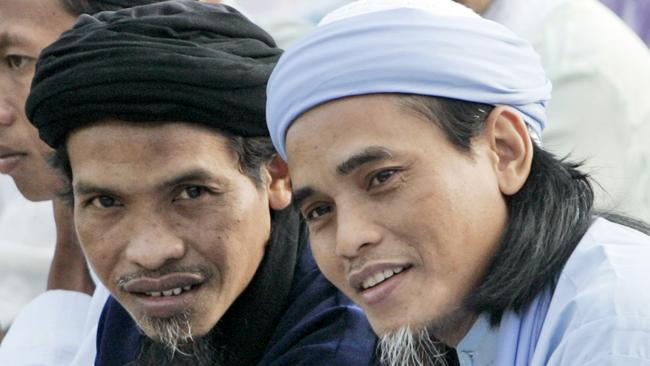
Ali Amrozi Nurhasyim Bought the van used in the Bali attack and together with his brothers Mukhlas and Imron was a leading figure in the terrorist bombing. Remained unrepentant until execution in 2008.
Ali Imron – The youngest of the three brothers, was a dedicated coordinator of the attack and claimed to have helped make the Sari Club bomb. Expressed remorse for the attack and was sentenced to life in 2003. Remains in jail.
Idris (aka Hendrawan) – Coordinated the purchase of the motorbike used in the attack and also drove the suicide bomber to Paddy’s Club. He confessed to being involved but case against him collapsed due to a lack of appropriate laws. He served five years (of a 10 year sentence) in jail for the Marriott Hoel bombing and was freed in 2009. Now lives in Sumatra. Remains unrepentant.
Zulkarnaen Arrested late last year after almost 20 years on the run. Leading member of JI jailed for 15 years for his role in aiding and encouraging terrorism by lending money and giving shelter to militants and withholding information about attacks. But he was not found guilty of direct involvement in the Bali bombings.
EX-BALI COP LIFTS LID ON BOMBING INVESTIGATION
Exclusive: The former Bali Police Chief who led the investigation into the 2002 bombings has spoken for the first time about what went on behind the scenes, revealing how he warned foreign police he would arrest them if they tried to conduct their own investigations on his turf.
Major General Made Mangku Pastika issued the stern warning to the police officers who had arrived from countries who had lost citizens in the blasts.
The top cop said he climbed up on a table in the middle of the investigations’ headquarters at the Kartika Plaza Hotel and tapped a glass with a spoon to get the attention of the police crammed into the room.
“I remember I get on the table at that time. My body is small compare to all those foreigners. The room was full,” Mr Pastika said.
“I got on the table, I took a glass and a spoon, and sounded it. Then I introduce myself: ‘I am Major General Made Mangku Pastika. You can call me Pastika. I was appointed as the chief investigator of this case.
“This is my country. I am responsible for this. If you do your own investigation, I will arrest you.”
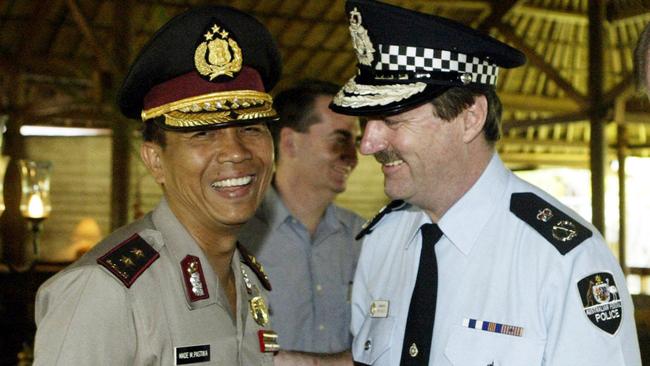
The room fell silent.
“All of them were quiet at that time,” Mr Pastika said.
Mr Pastika revealed many foreign police wanted to “run their own inconsequential investigations”.
“Police from Italy even (conducted) a raid on a hotel by themselves, but got nothing,” he said.
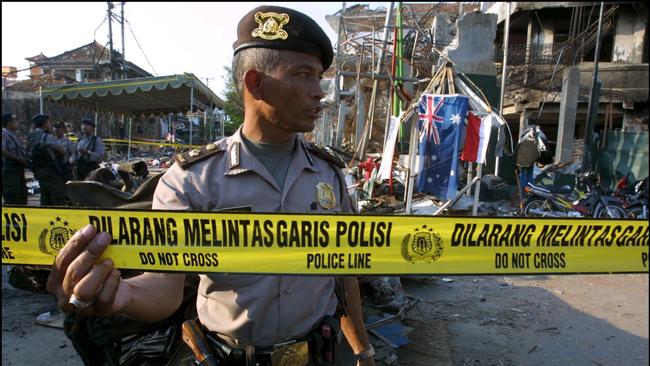
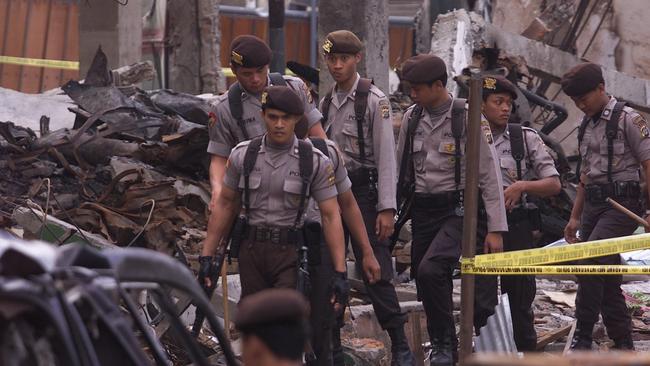
Now a politician, Mr Pastika said the foreign police at the time had underestimated the ability of the Indonesian Police and he had to lay down the law.
Mr Pastika – who became a sex symbol on the holiday island – said he also implemented the rules of engagement and, from that moment, the investigation ran smoothly.
Under his guidance, expert agents from the FBI, Scotland Yard, the Australian Federal Police and Australian State police forces helped uncover the evidence needed to track down the suspects.
Listen to the AFP’s new podcast Operation ALLIANCE: 2002 Bali Bombings
bali podcastWithin weeks of beginning the Bali investigation, Mr Pastika’s team made a major breakthrough, cracking the case wide open with the arrest of Amrozi, a 40-year-old mechanic, dubbed the smiling assassin.
Amrozi confessed to buying and transporting the explosives to Bali.
One year later, Indonesian courts convicted Amrozi and three other key terrorists. They have since been executed.
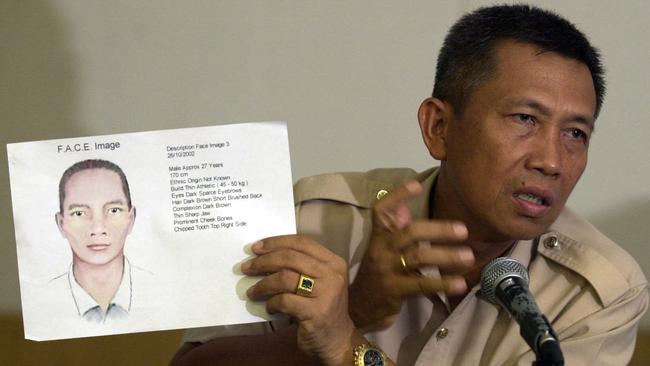
Many international terrorism experts say Mr Pastika was a catalyst for changing the perception of Indonesia as a nation of corruption and inefficiency.
Since the bombing investigations were wound up, Mr Pastika has held several positions including Bali Police Chief, National Narcotic Agency Head, and has twice held the position of Governor of Bali.
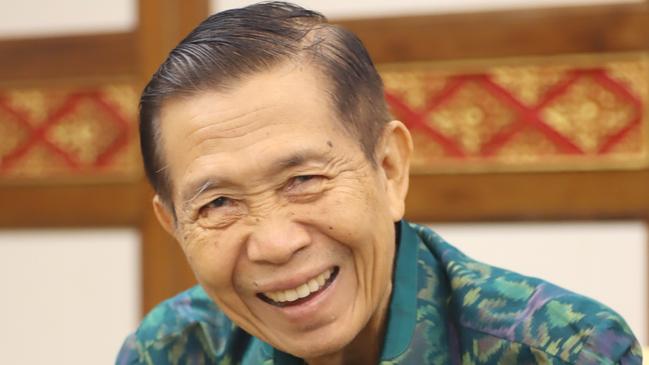
Now after 20 years, Mr Pastika doesn’t want to talk much about the Bali bombing, saying he believes it is time to move forward.
“The event is one generation ago,” he said.
“It is good for us if we try and build a new era of peace and harmony among us. So I hope that this moment we have to use it to develop our own tolerance.
“ … We don’t need to remember it again and again. Because there is an impact that we are worrying about. People now has already calm, they can be remember it again.
“These people (terrorists) always think that they are right. That’s why, I think, it is better to not remember it again,” he said.
“Let us not anymore think about the past, but think about what we have to do in the future. How we live in peace by understanding each other.
“During these 20 years, hopefully we understand, what was actually happened. We have learnt much. I think 20 years is enough to learn that (terrorism) is useless. It has no benefit. Why don’t we build a brotherhood? I know, it is not easy to forget it. I know. Especially for victims”.
Mr Pastika also said many of the terrorists have realised their wrongdoing and the deradicalisation program run by the government has been a positive program.
Originally published as Bali bombing anniversary: Where are the Bali bombers now


